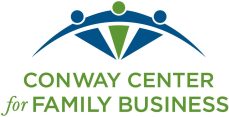Creating a trust is an essential component in your estate planning, but boilerplate trusts can often derail or negate the personal goals of your trust. Boilerplate trusts use form language and lack individual thought. They are not personal to you. They are often obtained from the Internet or from software used by many Ohio lawyers and included in beautiful leather-bound books.
A good trust stands in your shoes and takes the place of you when you can no longer speak for yourself. You let your trustees know what decisions you want them to take —without discretion, specifically itemizing those decisions YOU would have made if you were alive. Your trustees (usually spouse, relative, close friend) are then responsible for carrying out your wishes. You can specify the terms of a trust precisely, controlling when and to whom distributions are to be made.
To do this, you should have a thoughtful, detailed discussion with your estate planner establishing your trust. In addition to “health, education and welfare”, trusts can be written to cover those items personally important to you, such as funds to pay up to a certain amount for your child’s wedding, or assist with purchasing his or her first house. These are just two examples. The details and the level of specificity are up to you, but the outcome of your trust should always be the same – that it speaks for you as if you were alive.
A revocable trust can be changed at any time up until your death. Components in trusts are moving pieces — they can and should be reviewed often and revised as necessary. In terms of your business, a family business trust can be a component of your trust to ensure that the people working in your business inherit the business. A properly constructed trust can also help protect your estate from your heirs’ creditors or from beneficiaries who may not be adept at money management.
Another advantage of establishing a trust is that you avoid probate and the public process of inventorying and appraising your property, and paying any debts. A trust avoids probate and offers an efficient, private process to transfer your personal property after death.
I think we all can agree that facing your own mortality is difficult. But by asking the hard questions and making decisions now in creating a well-constructed trust, it can provide solace in knowing that you are protecting your loved ones by stipulating what you would do if you were still alive.
Bea Wolper is President of the law firm of Emens & Wolper Law Firm, Columbus, Ohio, where her practice focuses on succession planning, estate planning, oil and gas law, contracts and the buying and selling of assets and businesses, with an emphasis on family-owned businesses. She is also the co-founder of the Conway Center for Family Business.

